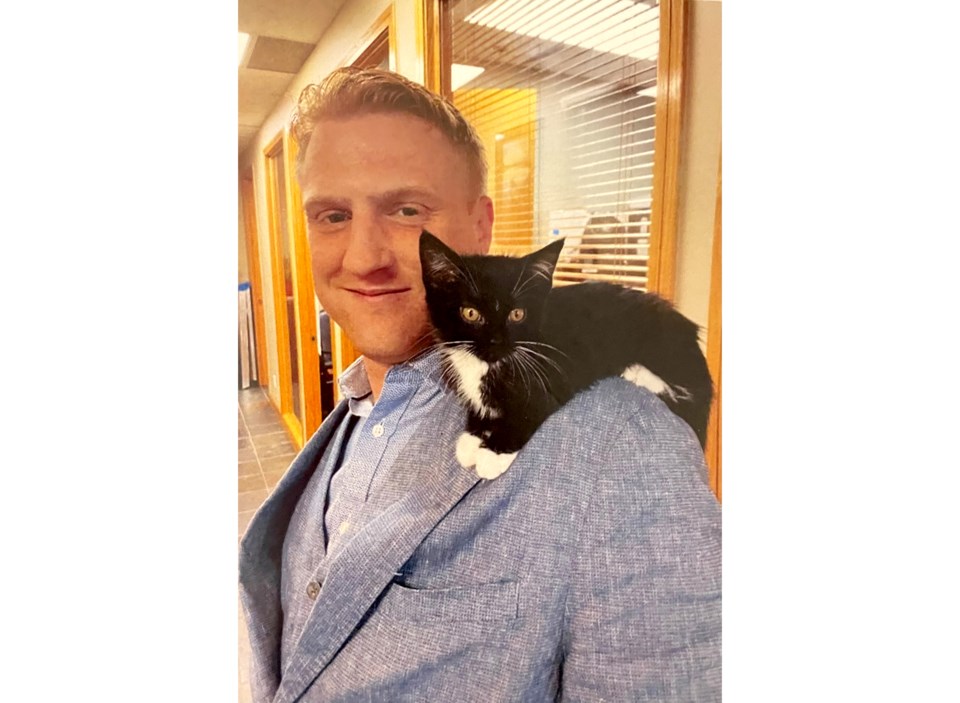Debbie Tablotney, chair of the Richmond Board of Education, will be placing purple ribbons around the city.
This is in memory of her son Curtis who died on Dec. 14 from a drug overdose.
Purple ribbons are the symbol created by “Moms Stop the Harm,” an advocacy group of mothers who have lost their children to drug overdoses and poisonings.
Debbie told Curtis a few months before he passed away she doesn’t want to wear a purple ribbon, but now she is donning one.
Curtis was 36 when he passed away in his Richmond home, and, on Friday, a packed house attended his celebration of life to hear how much joy he had brought to his friends and family.
Debbie spoke to the Richmond News of her son with fond memories, but she also expressed her frustration at the mental-health system that took years to diagnose his mental-health condition.
She described navigating the mental-health system, trying to find help for her son, as a “comedy of errors.”
Curtis grew up in Richmond, attended Westwind elementary and graduated from Steveston secondary in 2004. He was an insurance broker and worked for the family’s insurance company.
Despite his struggles with his mental health and addictions, Curtis was intelligent, caring, affectionate, adventurous and, above all, fun - Debbie recalls how, when he was young, he would make her laugh in church.
“It was chaos, but it was good chaos,” she said.
Curtis would go out of his way to do things for other people, comforting friends, showing up when people needed help or creating fun things for the kids in the neighbourhood.
During COVID-19, Curtis was always doing things for kids in the neighbourhood, be it an Easter egg hunt or Halloween celebrations, Debbie explained.
Everyone in the neighbourhood loved him, she said, and, conversely, “he could always see the good side of everybody.”
But Debbie described how frustrating it was to get him help for his mental-health issues – for years, he was hearing voices and had paranoia, but he was brushed off by countless doctors who put this down to him using drugs.
Many times, the family would seek out help when things got rough, or take him to the hospital, but invariably he would be sent home, and there would be no follow-up nor any referral for further care.
One psychiatrist even told Debbie he was “too complex” for her to treat.
Curtis also tried to go to treatment to stop using drugs, but invariably was tossed out if he relapsed – something that addiction specialists say is part of the recovery process – or his anxiety would get the better of him and he would leave. Debbie told the News how he went to one treatment centre that didn’t want him necessarily taking medication for anxiety, but he then left because his anxiety was too high.
He finally got an addictions doctor and psychiatrist and, last year, he was diagnosed with schizoaffective disorder and was getting treatment. But, again, appointments were few and far between, Debbie explained.
For families and loved ones of people struggling with addiction and mental-health issues, Debbie’s advice is “don’t give up,” keep advocating for them and help them advocate for themselves.
In addition to his mother Debbie and father Andrew, Curtis leaves behind two brothers, Trevor and Troy, and his long-time girlfriend Fernanda Sanchez as well as extended family and many friends.



